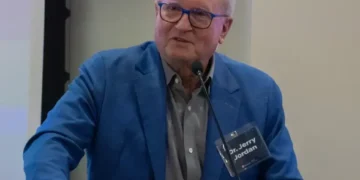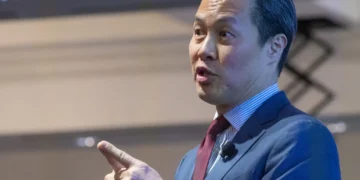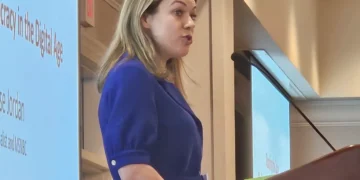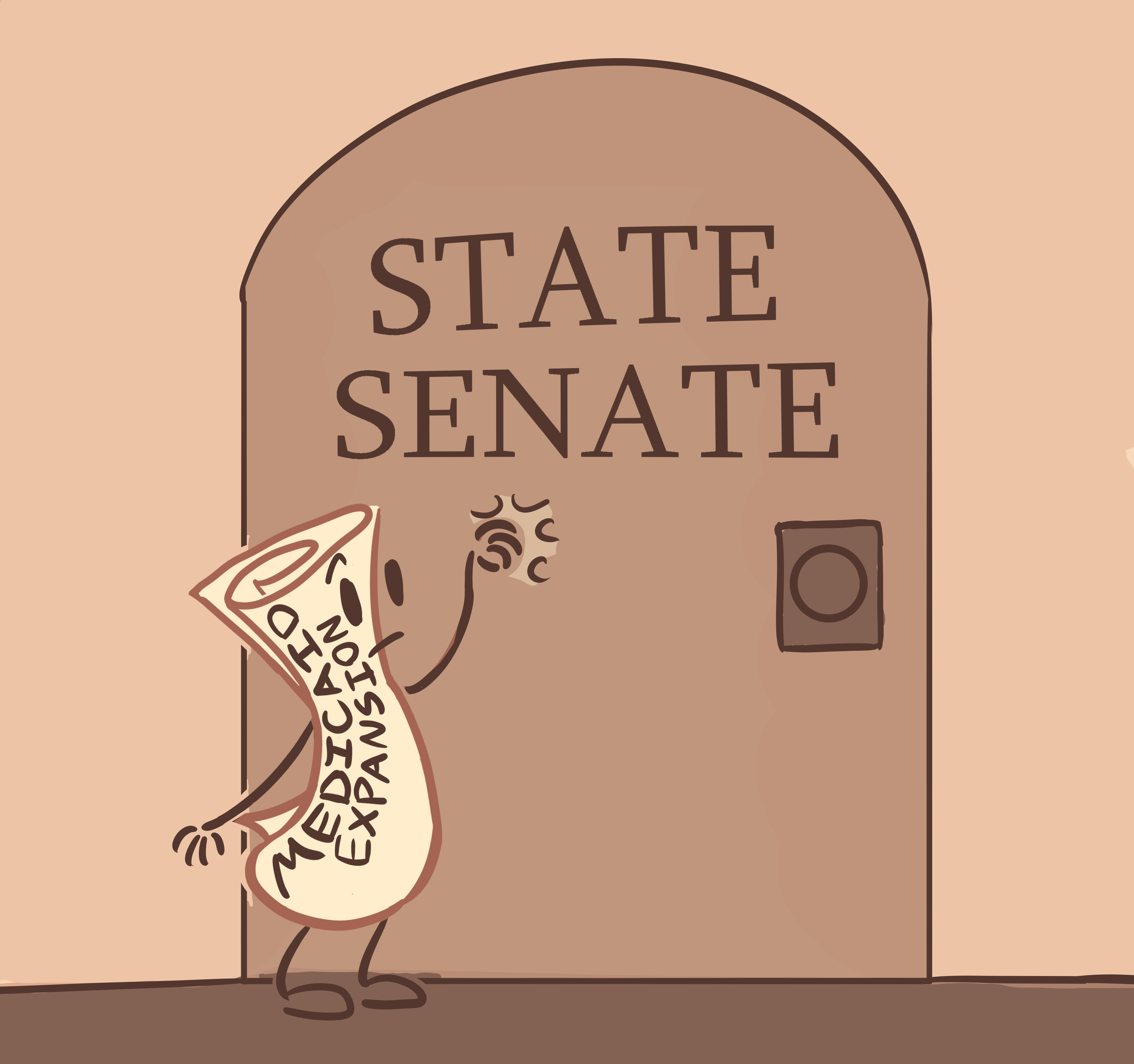
The Mississippi Legislature’s Senate Medicaid Committee voted Wednesday to pass its version of a Medicaid expansion bill. The legislation will now head to a floor vote in the full Senate.
The legislation is the Senate’s take on House Bill 1725, which passed in the House on Feb. 28 with broad bipartisan support. The Senate’s version of the bill limits the House’s original Medicaid expansion coverage, while also increasing a much-contested work requirement for entry into the program. Under the rules of the Affordable Care Act, the Senate’s bill does not qualify as Medicaid expansion and will miss out on federal dollars as a result.
The Senate allowed its original Medicaid expansion bill to expire on the floor on Thursday, March 14. The failed Senate bill, which consisted primarily of regulatory procedures but not a concrete plan for expansion, was not brought to a vote. Instead, Senate leadership has proposed lengthy amendments to the bill’s counterpart from the House of Representatives.
Senate Medicaid Committee Chairman Kevin Blackwell, a Republican, told Mississippi Today that he was using a “strike-all clause” on the House’s bill that will allow him to enforce a work requirement clause already present within the House bill’s original text. The work requirement would restrict Medicaid access to unemployed Mississippians.
Republican Sen. Nicole Akins Boyd, who represents District 9, where Oxford is located, says she is pleased with the version of the bill that has made its way through the Senate. The content of the Senate’s new version of the bill had not been finalized at the time of interview.
“Mississippi has many hardworking people who would benefit from better access to health care,” Boyd said. “The Senate is taking action to address the lack of health insurance for up to 80,000 working Mississippians.”
The original bill from the House called for an expansion of Medicaid coverage to more than 200,000 Mississippi residents who fall below 138% of the federal poverty level, meaning any individual whose annual income falls below $20,738 according to Health and Human Services Poverty Guidelines.
The bill, which passed the Senate Medicaid Committee on March 27, limits coverage to only individuals who fall below 99% of the federal poverty level, the equivalent of $15,060 in annual income. Compared to the House bill, the Senate’s version excludes 49,000 Mississippi residents from eligibility.
This is why the Senate bill does not count as Medicaid expansion under the rules of the Affordable Care Act. As a result, the federal government will be funding its regular match rate of 77% of Mississippi’s Medicaid expenses — less than the 90% match rate the state would receive under the true expansion bill proposed by the House.
According to Boyd, expanding Medicaid beyond the Senate’s proposed 99% plan would force those already receiving coverage through the Federal Marketplace Exchange Plan, also called the exchange, to switch to Medicaid. The Federal Market already affords health care coverage to those within 100-400% of the federal poverty level.
“Currently, 140,000 people in (the 100-138%) income range get affordable private health insurance through the Federal Marketplace,” Boyd said. “This marketplace offers federal government subsidies to help lower the cost. When most states expanded Medicaid, the exchange was not so heavily subsidized, so they did not necessarily have the option to keep citizens with access to the exchange on it and allow others to receive Medicaid coverage.”
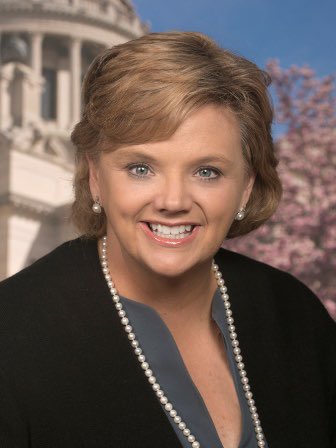
Boyd considers the Federal Marketplace program more beneficial to those falling within the 100-138% brackets.
“Under the House’s plan, it would kick those 140,000 Mississippians off the exchange and place them on Medicaid,” Boyd said. “On average, the federal exchange plans pay to providers on average of 42% higher than Medicaid insurance and better reimbursement leads to more providers taking the exchange plans. Thus, the House plan could potentially reduce access to care for those 140,000.”
Boyd also explained why she believes the Senate bill actually saves revenue for Mississippi.
“Why (would) the state pick up 10% of the cost for 140,000 people when the federal government is subsidizing almost all the cost of (the Federal Marketplace) plans for people in the coverage gap between 100% to 138%?” Boyd said. “The Senate plan offers the best options for both those under 100% and those between 100% and 138%.”
The proposed bill from the House already included a built-in requirement that recipients be employed at least 20 hours per week or be enrolled as a full-time student in a secondary, postsecondary or work-training program.
The Senate Medicaid Committee has extended this work requirement to 30 hours per week, a change some students at the University of Mississippi agree with.
“I think, fundamentally, working to contribute to your own coverage is a good thing,” Isaiah Goss, a sophomore public policy leadership major, said of the Senate’s bill. “Increasing the work requirement and also not forcing people off of their current plans within the Federal Marketplace is a better way to approach the issue, especially if those people are already happy with the plans they have.”
Kaley LeCroy, a sophomore public policy leadership major, expressed approval of the proposed House bill.
“I am excited to see lawmakers finally take steps toward ensuring all Mississippians have access to the health care that they need, but the Senate’s proposal is disappointing,” LeCroy said. “I understand the desire for a work requirement to ensure that people who receive these benefits are the people who the program is aimed at, but a 30-hour requirement may be too stringent and provide further barriers to those who would benefit from the program the most.”
While the House passed the bipartisan House Bill 1725, any further changes made by the Senate would still need to pass both houses of the Mississippi Legislature. The bill, which originated in the House Medicaid Committee and the Office of the House Speaker, passed with overwhelming support in a 96-20 vote, though changes in the Senate are likely to extend debate on the House floor.
The Senate’s decision to move forward with the House bill instead of its own left Melissa Bass, an associate professor and undergraduate coordinator for UM’s Department of Public Policy Leadership, doubtful that the bill will move forward this year. She believes that the Senate’s use of a strike-all clause may stop the bill from becoming law in the current term.
“As for the expansion’s prospects, it looks like a final bill won’t get passed by both houses. Or, if one does, it looks like the Senate is going to insist on a hard work requirement that the federal government is unlikely to accept,” Bass said. “Given this, it looks like it won’t be going forward this year.”
The continued debate over the work requirement may cause further problems for the bill if legislators in both houses settle on above-100% poverty level expansion. A more strict requirement from the Senate may cause the bill to shutter on the federal level, as other states pursuing work eligibility requirements have had difficulty expanding their programs after the bill was made law.
The state of Georgia tried to implement a similar work requirement in its Pathways to Coverage program, and it was rejected by the Biden administration for restricting Medicaid eligibility. Georgia Gov. Brian Kemp then sued the Centers for Medicare and Medicaid Services, citing a limited window of time to examine the efficacy of the program that has only enrolled 1,800 people since its launch.
Mississippi legislators in the House were hoping to avoid the same fate by including a secondary clause in their bill that would extend full coverage to Mississippi residents that fall below the 138% poverty line, regardless of the 20-hour work requirement, if the federal government does not accept the requirement by Sept. 30, 2024.
If a set of amendments to the bill can be agreed upon and passed by both houses of the state legislature, Medicaid expansion still faces perhaps its greatest challenge in Republican Gov. Tate Reeves, who was criticized in his recent re-election campaign for refusing to allow Medicaid expansion in Mississippi.
In a Feb. 27 post on X, Reeves voiced his opposition to expansion.
“The Biden Team is overjoyed with what some in Mississippi are planning right now,” Reeves said. “Count me amongst those ‘extreme MAGA Republicans’ who think government should not run healthcare.”
Despite Reeves’ strict, anti-expansionist views and his allegiance to the MAGA movement, other prominent Republicans have supported Medicaid expansion bills similar to the one currently being debated in the Capitol.
The Trump Administration approved Georgia’s plan to expand Medicaid under the Pathways to Coverage program, a plan much like the one that Reeves has so far opposed in Mississippi.
While the governor has continually dismissed the idea of full Medicaid expansion, it is yet to be seen if he would sign into law a bill that allowed for a 20- or 30-hour work requirement, although reports have suggested he would veto the bill if given the chance.
Mindful of Reeves’ ability to veto a bill passed by both houses of the legislature, Sen. Blackwell spoke with Mississippi Today on Feb. 27 about why he thinks a veto-proof, two-thirds majority vote may be possible with the inclusion of a stricter work requirement.
“It’s becoming a bigger need when you take a look at the hospital situation, which was really highlighted during COVID,” Blackwell said. “With what we’re doing from an economic development standpoint, bringing in these large development projects, we need to have a healthy workforce. So from that standpoint, I can tolerate it.”
The contested work requirement comes in conjunction with a set of other stipulations for enrollment in the updated program, such as restricting eligibility to those between the ages of 19-65 years old, an exclusion of coverage to non-U.S. citizens who are ineligible for the program and a required 12-month holding period for those withdrawing from private insurance to enroll in Medicaid. These additional conditions have faced much less opposition.
Despite the challenges facing the bill, Democrat and Republican House members remain confident a deal can be made to secure expansion.
“This is a fluid process,” Democratic Rep. Robert Johnson told the Mississippi Clarion Ledger. “We have ideas, we have things that we like about their plan and things we don’t, and we have things we’re trying to get them (the Senate) to incorporate from our plan. We’re going to continue to work together.”
Vedanth Buddala, a senior biology major, currently serves as the president of Jackson Free Clinic Health Ambassadors Program, which raises money and awareness for the free clinic in the state’s capital.
“The Jackson Free Clinic only provides services to the uninsured, but whenever I volunteer there, I see some patients very excited to get on Medicaid again,” Buddala said. “I am thankful that Mississippi is making efforts to expand Medicaid for the benefit of our people.

























